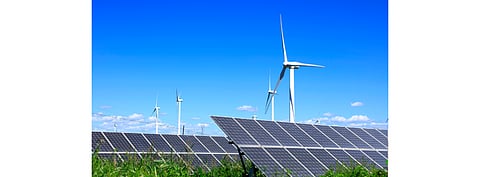

The German coalition has decided to expand the country's solar PV tender volume in 2022 to 6 GW, increasing it from 2 GW, according to an agreement reached. This is part of the country's overarching aim to reach 65% share of renewables in its total electricity mix by 2030 (see Germany Approves Climate Protection Act 2030).
For onshore wind power tenders, the 2022 volume has been raised from 2.9 GW to 4 GW. According to Reuters, the government plans to re-tender volumes that are not used up in 2021 and 2022.
Under EEG 2021, the renewable power surcharge on consumer electricity bills will be phased down from €0.065 per kWh in 2021, to €0.06 per kWh in 2022 to €0.05 per kWh in both 2023 and 2024. The government wants to eventually phase it out completely in the future, but there was no certainty to this.
The government wants to expand renewables through auctions to ensure decarbonization of its electricity grid.
In a sharply worded statement, German solar association BSW Solar likened the planned special tenders to a 'homeopathic dose with which nothing can be done against climate change'. BSW General Manager Carsten Körnig said, "A fire extinguisher cannot put out a devastating forest fire, with 4 GW more photovoltaics it cannot prevent a climate collapse!"
It points out that the present draft does not make way for the expansion of small and medium sized PV systems, and the association does not really see much merit in plans to increase in PV subsidy auctions on buildings. It does welcome the plan to improve the framework conditions for storage in the Energy Industry Act, but wants it to be backed up with concrete measures.
In December 2020, the German Parliament passed EEG 2021 making way for less than 5 GW of annual solar PV capacity addition in the country, as against the industry demand of 10 GW, which did not go down well with the industry (see German Parliament Passes EEG 2021; Industry Not Happy).
